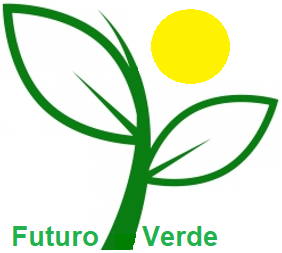TITLE OF THE TRAINING ACTION
Ecological and Social Transition: The Basics of Sustainable Development
PURPOSE, DURATION AND NUMBER OF TRAINING
The professional objective of the training action is as follows:
The main objective of this training is to provide participants with the knowledge, tools, and skills necessary to understand the issues of sustainable development and to act in a concrete and proactive manner in the face of current environmental, social, and economic challenges.
At the end of this training, participants will be able to:
- Understand the fundamental principles of sustainable development, including its economic, social, and environmental dimensions.
- Identify critical issues, such as climate change, natural resource management, and social inequalities.
- Develop solutions adapted to their personal or professional context.
- Mobilize and raise awareness among those around them of the importance of a collective commitment to a sustainable future.
The content of the training action contributing to skills development is detailed below:
The content of the training is organized into several thematic modules:
Module 1: Introduction to Sustainable Development
- History and definition of the concept.
- The three pillars: economic, social, and environmental.
- The United Nations Sustainable Development Goals (SDGs).
Module 2: Challenges and Issues of Sustainable Development
- Climate change and biodiversity.
- Social inequalities and economic justice.
- Natural resource management and circular economy.
Module 3: Solutions and Local Actions
- Best practices for individuals and communities.
- Case studies: examples of successful projects.
- Introduction to impact assessment tools (carbon footprint, ecological footprint).
Module 4: Awareness and Engagement
- Techniques for raising awareness about sustainable development.
- Citizen engagement and responsible communication.
- Collaboration between stakeholders (individuals, businesses, NGOs).
Module 5: Sustainable Business Practices
- Corporate Social Responsibility (CSR) and its impact.
- Sustainable supply chains and ethical sourcing.
- Green finance and sustainable investments.
Module 6: Sustainable Urban Development and Smart Cities
- Eco-friendly infrastructure and sustainable urban planning.
- Renewable energy solutions for cities.
- Smart technologies for environmental management.
Module 7: Environmental Policies and Regulations
- Overview of national and international environmental policies.
- Compliance and legal frameworks for sustainability.
- Role of governments and international organizations in sustainable development.
Module 8: Innovation and Future Trends in Sustainability
- Emerging technologies (AI, blockchain, IoT) for sustainability.
- Innovations in renewable energy and waste management.
- Future scenarios and pathways toward global sustainability goals.
TRAINING DELIVERY MODALITIES
Technical and Pedagogical Resources Used Technical Resources
- Presentation materials: Slideshows (PowerPoint or others).
- Digital resources: Educational videos, infographics, and downloadable PDF documents.
- Online platforms: Zoom, Microsoft Teams, or training management platforms (LMS).
- On-site equipment: Computers, video projectors, whiteboards, and posters.
Educational Resources
- Active Pedagogy:
Role-playing games and simulations to understand practical issues.
Real-life case studies to illustrate concepts.
- Educational Materials:
Educational booklets given to participants.
Interactive quizzes to liven up sessions.
- Participatory Activities:
Group brainstorming to co-create solutions.
Visits to sites or organizations involved in sustainable development (eco-neighborhoods, urban farms, etc.).
- Support:
Assistance in defining personal or collective projects to be carried out after the training.



